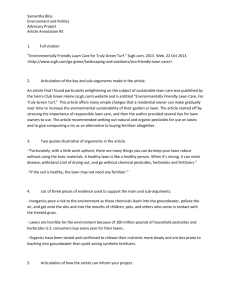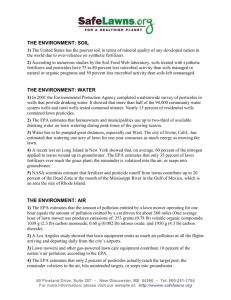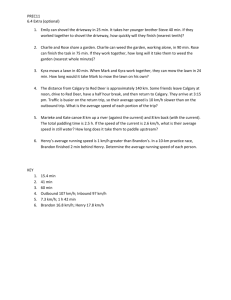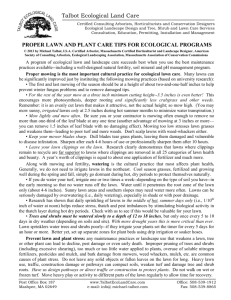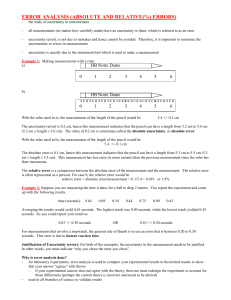Linear Functions and Proportionality
advertisement
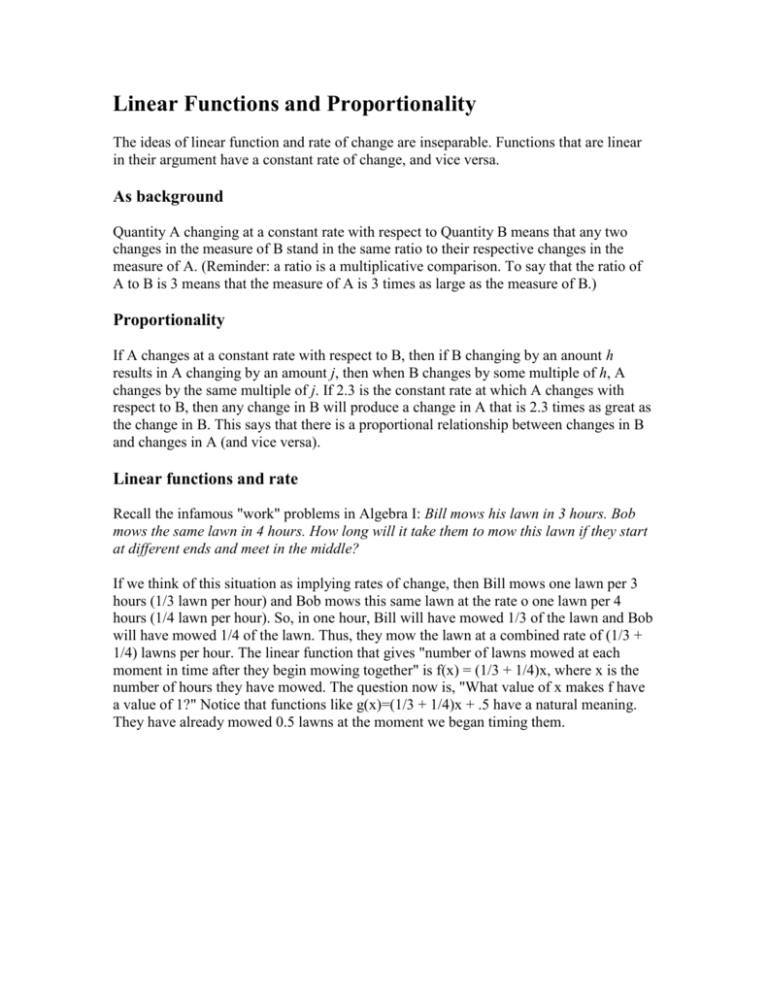
Linear Functions and Proportionality The ideas of linear function and rate of change are inseparable. Functions that are linear in their argument have a constant rate of change, and vice versa. As background Quantity A changing at a constant rate with respect to Quantity B means that any two changes in the measure of B stand in the same ratio to their respective changes in the measure of A. (Reminder: a ratio is a multiplicative comparison. To say that the ratio of A to B is 3 means that the measure of A is 3 times as large as the measure of B.) Proportionality If A changes at a constant rate with respect to B, then if B changing by an anount h results in A changing by an amount j, then when B changes by some multiple of h, A changes by the same multiple of j. If 2.3 is the constant rate at which A changes with respect to B, then any change in B will produce a change in A that is 2.3 times as great as the change in B. This says that there is a proportional relationship between changes in B and changes in A (and vice versa). Linear functions and rate Recall the infamous "work" problems in Algebra I: Bill mows his lawn in 3 hours. Bob mows the same lawn in 4 hours. How long will it take them to mow this lawn if they start at different ends and meet in the middle? If we think of this situation as implying rates of change, then Bill mows one lawn per 3 hours (1/3 lawn per hour) and Bob mows this same lawn at the rate o one lawn per 4 hours (1/4 lawn per hour). So, in one hour, Bill will have mowed 1/3 of the lawn and Bob will have mowed 1/4 of the lawn. Thus, they mow the lawn at a combined rate of (1/3 + 1/4) lawns per hour. The linear function that gives "number of lawns mowed at each moment in time after they begin mowing together" is f(x) = (1/3 + 1/4)x, where x is the number of hours they have mowed. The question now is, "What value of x makes f have a value of 1?" Notice that functions like g(x)=(1/3 + 1/4)x + .5 have a natural meaning. They have already mowed 0.5 lawns at the moment we began timing them.


